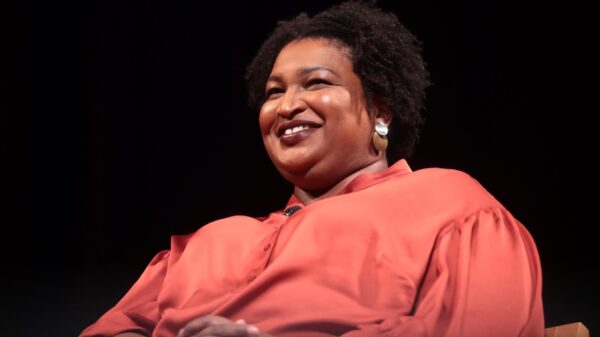University Counseling Services recognized Suicide Prevention Awareness Week with an open house last week, which exhibited resources available for students to maintain mental well-being. Counselors revealed where the university stands on mental health and suicide awareness.
At the gathering, counseling services office spaces were adorned with purple and blue decorations on the lower level of the Harriet Tubman Quadrangle to honor the colors of the nationally recognized week. The event provided students with the opportunity to meet counseling services professionals, learn about counseling services and gain insight about the office’s work with mental health and suicide prevention on Howard’s campus.
Kratel Ruiz-Washington PsyD, LOCP, who is a staff psychologist and the Interim Outreach Director for the counseling office, said she wanted the open house event to help students become more familiar with what the office can provide.
“Oftentimes, it’s easier to reach out to a resource if you know the face,” she said. “Exposure is very helpful.”
Christina Barnett, Ph.D., explained how exposure can be an important tool to demystify counseling services. Barnett said that the goal of the open house is to “take away the pressure of feeling like mental health is a big, scary thing.” She acknowledged that, in many cases, students are intimidated by conversations of mental health. “But, we’re here to support,” she added.
Yvianick Saint-Vil, a junior human development major from Nyack, New York attended the open house last week to learn more about counseling services so that she could make mental health a priority this semester.
Saint-Vil acknowledged the pressures that come with being a full-time student, especially for those who want to pursue extracurricular opportunities. Her advice to underclassmen is that “you cannot be your best self in those opportunities if you don’t take care of yourself first.”
“A lot of the time, what puts people in that pit is believing the lie that they’re alone,” Saint-Vil said.
Timmi Chris Pernell, a freshman English major from Newark, New Jersey, did not attend the open house event but has a connection to someone who struggled with suicidal behavior. Chris recalled an experience when a former classmate was self-harming.
“I feel like people don’t understand that it literally comes out of nowhere sometimes,” Pernell said. Despite having a support system of family and friends himself, “There have been moments where I’ve really felt down about myself,” he said.
“That’s where practicing good mental hygiene comes into play. It will help you to feel better about yourself and condition yourself to, when you do feel those moments, push through,” Pernell added.
When reflecting on whether the majority of students are taking advantage of the support services provided by her and her colleagues, Dr. Ruiz-Washington pointed to a stigma surrounding mental health.
Ruiz-Washington explained that though Howard University is historically Black, “the student body is not monolithic.” She said many students come from households where discussing topics such as mental health and suicide are taboo.
Jes Williams, a freshman psychology major from Chicago suggests more willingness and less judgment when it comes to talking about these topics.
“People never have honest conversations,” Williams said, “because if you talk about suicide people think that you’re going to kill yourself and you need to be hospitalized now, or you’re crazy and weird.” Which she believes, as she went on to explain, can lead to exacerbated feelings of isolation.
Despite any mental health stigma, Ruiz-Washington is optimistic about the impact her office has on Howard’s students. In the historical context of mental health, she thinks that “the trend is changing.”
Barnett agreed, adding that social media has shifted the public conscience to be more open to conversations on mental health. Barnett expressed that younger generations are intentional about “seeking help” and “unpacking” issues such as generational trauma.
Despite some positive impacts social media might have, in late May, United States Surgeon General Dr. Vivek Murthy, issued an advisory on social media’s adverse effects on youth mental health according to the U.S. Department of Health and Human Services.
“The need is high,” said Barnett about the office’s role on campus, “and we are always in demand.”
One specific way the office has sought to effectively meet the mental health needs of the student body is by reaching across departments on campus. Ruiz-Washington described some of the strategic crisis response methods they’ve adopted.
“We’ve been doing faculty training,” she said, “and we’ve also created a guide to help them to know, from a layman’s point of view, what to look for if a student is in distress.” Counseling services follow extensive protocols appropriate to the situation including suicide risk assessments.
According to the American College Health Association, 29.5 percent of college students exhibited suicidal behavior last year. In the same year, more than three-quarters of students experienced moderate to severe psychological distress.
Students who are in need of immediate help can call the 24-hour crisis line (202)-345-6709.
Copy edited by Alana Matthew







